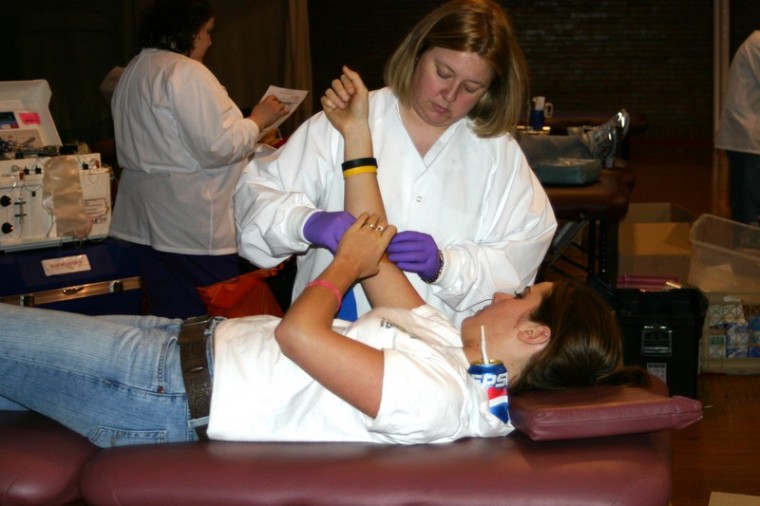Out for blood
December 2, 2004
Junior Macy Allen knows giving blood can make a difference: her grandfather had a quadruple bypass and needed blood transfusions.
“When it’s that close the need to get involved becomes clear,” Allen said. “After my grandfather had his surgery, I understood how important donated blood is.”
Thanks to Allen and many others, the Blood Center of Iowa collected 89 pints of blood at the drive sponsored by Alpha Phi Omega in Cowles Fieldhouse Nov. 19.
Jessica Copeland, a sophomore, knows she can help someone by giving up a few minutes during the day to donate blood.
“This is a small way I can help out,” Copeland said. “I know that it will help out someone a lot.”
Allen is aware that many of her friends get squeamish at the thought of donating blood, so she makes a point to talk about it with them so they might become more relaxed about the idea. She said many people are very protective of their body and are uncomfortable with giving away what they consider part of their body.
“I used to be terrified of needles and I literally cried when I knew I had to get a shot,” Allen said. “I realized it was a phobia so I decided that I was going to overcome it. I went with a few friends and donated blood.”
Alpha Phi Omega treasurer Anita Zahs said the blood drive is a project that many students look forward to for different reasons.
“The blood drive is one of our biggest projects of the year, and it is also one of the most rewarding,” Zahs said. “Donating blood is an easy way to help someone … and the blood drives allow us to interact with the entire campus and community as well.”
Each pint of blood can save up to three lives according to Lorri Eter from the Blood Center, so the 89 pints collected from Simpson could potentially benefit 267 people.
Eter said the Blood Center tries to visit this area a couple of times during the year. Two more visits, on Feb. 4 and April 14, have already been scheduled.
“The great turnout we find here at this college and Indianola helps with donations from other counties to maintain our supplies at a safe level,” Eter said.
According to Eter, the most common factor to disqualify a donor is low iron percentages in the blood, which eliminates six to seven percent of the possible donors.
Even though the state of Iowa has maintained safe levels of blood supply, Allen knows there’s always a need.
“I have to understand why some have a different perspective than me,” Allen said. “But it still doesn’t stop me from telling them that I am going to donate and they should come to.”












